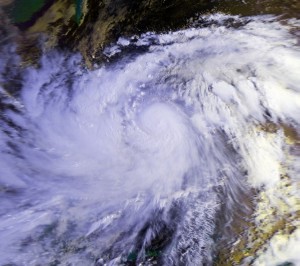Dear everyone saying government failed because it set a zero-casualty goal but people died anyway: You are getting it all wrong.
A zero-casualty goal should not be considered by any reasonable person to be an absolute statistic. Instead, it should be considered a frame of mind and a guiding philosophy.
A person – whether a government official or not, whether a rescue worker or just the man on the street – with a zero-casualty frame of mind is someone who has decided that he will do everything he can do to prevent the loss of life of those who look to him as some sort of authority or, even when they don’t, are physically around him. She’s the woman who doesn’t have to but will wade out into raging flood waters to rescue someone who is having trouble surviving on his own. He’s the guy who will leave the comfort of his home to volunteer to save those left homeless by calamity.
When a majority of people think this way, then a measure of success has been achieved.
As a guiding philosophy, zero-casualty means examining every single aspect of a potential calamity and preparing responses for all eventualities. A zero-casualty philosophy places greater priority on safety over convenience. It imposes burdens on the governed now to ensure that when a calamity happens later, those burdens are able to pay dividends in terms of survival.
When governments can be demonstrably said to have maximized the potential for survival, then a measure of success can be claimed.
These measures are necessary because when all is said and done, zero-casualty is also a goal. A concrete goal that is highly improbable to achieve but is nevertheless NOT impossible to attain. Unfortunately, real life stacks the deck against zero-casualty. In real life, people don’t always think rationally; in real life, accidents happen; in real life, even the best of us can screw up.
What matters is that having this goal focuses us and frees us from distractions like petty politics. It constantly reminds us that all our actions have to be geared towards achieving this goal, allowing us to prioritize our actions and our finite resources; helping us pare away the non-essentials so that we are left with what we absolutely need to get the job done. Most importantly, zero-casualty has the potential to unite us in times of calamity because, just as surely as a solitary stick can easily be broken, we are stronger when we are together.

